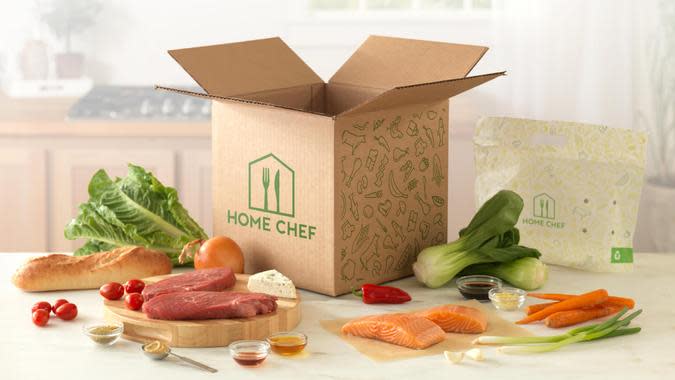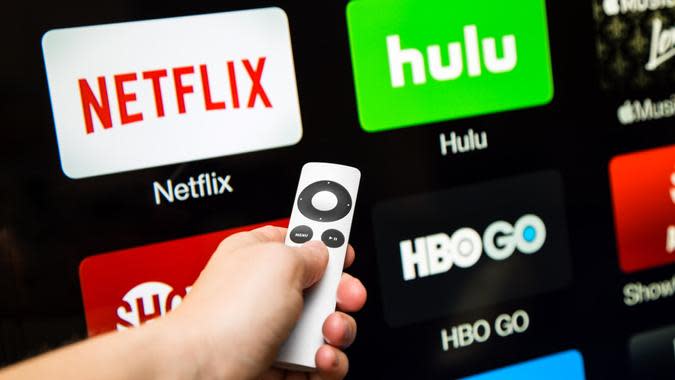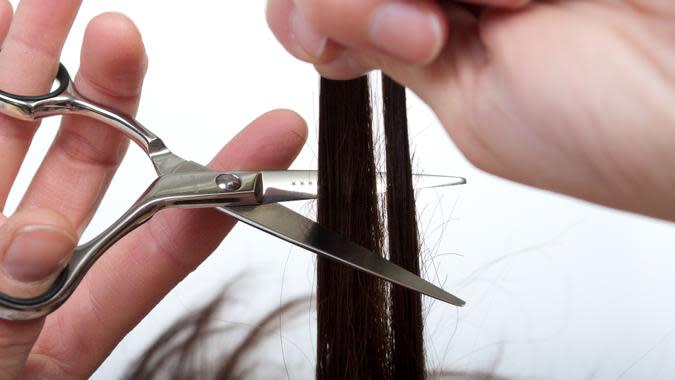10 Ways To Spend Less Money Now, According to Experts

Inflation is finally starting to subside and prices are beginning to rise more slowly -- but they're still rising all the same. If you want to spend less and save more in these challenging times, you should start by asking yourself two questions: What can you use less of to save money and how can you get the things you need at a lower cost?
Money: The 15 Biggest Bank Failures in US History
Find Out: How To Build a Financial Plan From Zero
The good news is that you don't have to look far to find ways to save. According to several experts who spoke with GOBankingRates, a little breathing room in your budget is often hiding in plain sight.

Stop Letting Yourself Off Easy -- Create a Budget
Keeping track of money coming in and going out can be tedious work, but that's not why people avoid creating budgets. They avoid it because budgets force them to confront their own overspending.
"Keeping track of expenditures for 30 or 60 days is likely to be a wake-up call for many people," said David Farkas, founder and CEO of The Upper Ranks. "But if you do this, then you'll have to rethink whether or not you actually need to spend the money. Finding out where your money is going is an important first step in decreasing costs."
Take Our Poll: Would You Move for a Job That Paid You a $10,000 Signing Bonus?

Get Your Subscriptions in Check
You need a VPN to keep your browsing clandestine, you need a mindfulness app to keep your head in a good place and you need a music subscription to keep those playlists fresh -- but do you really need any of them?
"There is so much money spent on free trials we forgot about or subscriptions for services we no longer use that take $10 here and $20 there," said credit and financial literacy coach Markia Brown of The Money Plug. "We never notice, or we put it off and say, 'Oh, I'll cancel that later.' That money adds up over time, especially if it's more than one subscription. It could be a gym membership you signed up for at the beginning of the year when you were on your health kick or a ShoeDazzle subscription you forgot to cancel months ago after buying shoes for an event. Everyone should reassess subscriptions monthly to ensure they are still helpful and not a waste of money that you could allocate elsewhere."

Rotate Streaming Media Services
The great thing about cord-cutting is that streaming services don't come with contracts. You can cancel anytime -- and that's exactly what you should do when the well runs dry so you can rotate in a fresh service and avoid paying for dead digital weight, according to Brown.
For example, you might need Hulu in October for all your favorite horror movies during Huluween. In November and December, you might need Philo because it delivers all three Hallmark channels. You might need HBO Max to catch the latest iteration of "Batman" and the Baltimore cop show with all the people from "The Wire" that isn't actually "The Wire" -- but you don't need all three at the same time month after month.
If you're bleeding from the streaming section of your budget, it's time to check in and re-evaluate.
"Maybe it's your Netflix subscription you upgraded so that all of your friends could binge-watch "Stranger Things" Season 4 simultaneously, and you never downgraded the plan back," Brown said.

Hunt and Eliminate Recurring-Purchase Devices
The recurring-revenue business model sells an affordable device that you buy once and then charges a premium for a critical component with a finite lifespan that the consumer has to buy over and over again. Kodak did it with cameras and film. Gillette did it with razors and razor blades. Adobe did it with software and updates.
Get this business model out of your life wherever you see it -- even if it means spending a little more to invest in a one-and-done alternative upfront.
"We no longer purchase razors and shaving gel," said Jacqueline Gilchrist of Mom Money Map. "Instead of regularly purchasing disposable razors and shaving gel, I share a Philips electric shaver with my husband. He's had this same electric shaver for over 20 years. Collectively, we've saved a lot of money in this category."
Costco's Best Deals? Employee Reveals 10 Standout Buys for Your Money

If You Have a Trusted Partner, Learn To Cut Hair Together
The early pandemic quarantines didn't wipe out barbers and stylists -- but they did help a lot of people realize that they're perfectly capable of cutting their own hair. Some people simply can't forgo the regular professional haircut, but many others save big money by doing exactly that.
"My husband and I cut each other's hair," Gilchrist said. "I use clippers to cut his hair and he uses scissors to cut my hair. We bought this hair-cutting cloak on Amazon that costs less than $15 to help with gathering the cut hair for easier disposal."
Cutting hair, of course, is a craft that requires skill, experience and artistic flair -- or at least a few YouTube tutorials, which is how Gilchrist and her husband became proficient.
"We've been doing this for over 10 years and saved hundreds, if not thousands of dollars on haircuts," she said.

Save Green by Eating Green
Even before the pandemic, publications like Healthline were reporting that plant-based diets are typically much more affordable than eating meat -- and today's post-pandemic inflation has only widened that gulf.
"A really quick way to lower costs is to experiment with more vegetarian meals," said Diana Yanez, CFP, founder of personal finance site All the Colors. "Inflation has seen costs for meat rise more than for vegetables, so focusing your spending on veggies and less processed foods is not only good for your health, but also for your wallet."

Change Internet Providers -- Or at Least Threaten To
Your internet service is a steady, predictable monthly bill that you've probably set and forget with autopay -- but maybe it's time to remember.
"If you have more than one internet provider in your area, you may be able to switch to the other in order to get an introductory promotional rate," said Julie Ramhold, consumer analyst with DealNews.com. "Even if you aren't interested in switching, you can call up your current provider and see if they can match the competitor, but even if they won't do that, they may very well give you their current promotional savings for new customers. Either way, it can result in lower prices for you, so it's a win-win."
$2,000 Quarter? Check Your Pockets Before You Use This 2004 Coin

Ditch the Big Cell Providers and Buy Less Data
The big telecoms push pricey unlimited plans so hard that some no longer offer any other kinds of plans. The problem is that people who are home a lot just don't need all that data.
"When it comes to cell phone providers, if you're with one of the major ones, you may be overpaying, especially if you're paying for a lot of data you don't use," Ramhold said. "Unlimited plans can be good for alleviating the stress of incurring charges on the go, but if you're mostly around wifi networks that you can use, you may be able to drastically cut your cell phone bill. Consider swapping to a carrier like GoogleFi or Mint to get a much more reasonable monthly rate."
Mint charges $15 per month for 4GB of data if you pay for an entire year in advance.

Plug the Gaps That Keep Heating and Cooling Bills High
When climate-controlled air disappears through the cracks, gaps and failed insulation in your home, money disappears right along with it.
"Do a simple check of your home for spots where cold or hot air can enter," said Tanya Peterson, consumer finance expert with Freedom Financial Network.
It's not hard -- Energy.gov offers a free home energy assessment guide to help you identify your thermal transfer hotspots and eliminate them with quick fixes.
"Weather stripping around windows and doors can help," said Peterson. "Draft dodgers can offer a quick and inexpensive fix at exterior doors. During seasons when not in use, cover air conditioning units. In colder months, turn down the furnace at night. In warmer months, when possible, open windows and turn off the A/C."
Peterson cited Department of Energy data that shows the average homeowner can save 10% on heating and cooling bills just by adjusting the thermostat up or down by seven to 10 degrees for eight hours a day.

Go Big -- Even If Your Family Is Not
Costco endured the pandemic with some of the highest customer loyalty rates in the industry -- and contrary to popular belief, you don't have to have a huge family for a membership to make sense.
"Most people know warehouse clubs have some great prices, but couples, singles and smaller families may overlook them for groceries, thinking everything comes only in bulk," Peterson said. "But many things don't come in large quantities and don't perish easily, and there are many individual grocery items, frozen items and multi-packs of food options, with more and more organic choices."
More From GOBankingRates
This article originally appeared on GOBankingRates.com: 10 Ways To Spend Less Money Now, According to Experts

 Yahoo Finance
Yahoo Finance 